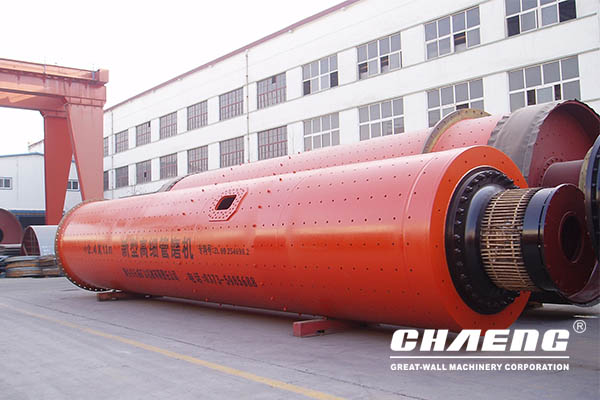Industry Reports
What is the cylinder structure of the ball mill?chaeng ball mill cost
The ball mill is based on the hollow shaft diameter of the discharge end slightly larger than the hollow shaft diameter of the feed end, which causes the slurry in the grinding machine to have a certain inclination to the discharge end to discharge the material. When the surface height of the slurry medium is higher than the lower busbar of the inner diameter of the discharge port, the slurry is discharged to the outside of the ball mill with the overflow movement. This is an unforced high-level discharge method, and the discharge speed is slow. Therefore, the mineral material stays in the machine for a long time, and the effective effect of the medium is also low. Therefore, the overflow ball mill is easy to over-grind and the treatment volume is also the same. The grid type of the specification is low. Generally suitable for two-stage grinding in fine grinding or two-stage grinding.

The cylinder is the main component of the ball mill, and it is composed of an end cover at both ends, a feed bushing, a discharge bushing, and a horizontally placed cylindrical rotating body (hereinafter referred to as a cylinder). In order to prevent excessive wear of the end cap and the cylinder, the inner wall of the cylinder and the inner surface of the inlet and outlet end caps are provided with a cylinder liner and an end cap liner of manganese steel, and the liner is fixed on the inner wall of the cylinder by bolts. In order to improve the grinding efficiency, and the barrel liner is cast into a wave-shaped section, the end of the liner has a lifting strip. There is a rubber pad between each part of the lining and the corresponding parts, which has a certain buffering effect on the impact of the falling of the steel ball, and it can also strengthen the lining and the body to protect the cylinder steel plate and reduce noise. A rubber seal ring and a metal pressure ring are arranged under the bolt body of the ball mill cylinder and the outer cover of the end cover to prevent the slurry from flowing out of the bolt hole. The inlet and outlet hollow journals are provided with inlet and outlet ports or inlet and outlet bushings to prevent wear of the hollow journal.
In order to facilitate transportation, the cylinder body is divided into three sections in the longitudinal direction and two points in the radial direction. The cylinder body and the cylinder body, the cylinder body and the end cover are positioned by the nozzles, and the precision is matched, and the pin positioning is adopted between the two cylinders. In order to prevent deformation, the inner frame welding support is used in the barrel manufacturing process, and is kept to the site for installation, which can ensure the size and facilitate on-site assembly. The end caps are equipped with spreaders for easy transport and installation.



